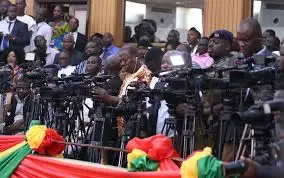Thugs Storm Ashanti Regional NASPA Election as Second Attempt to Elect Executives Fails

The Ashanti Regional branch of the National Service Personnel Association (NASPA) plunged deeper into crisis on Friday, June 13, 2025, after a second failed attempt to elect new regional executives was disrupted by confusion, bitter disputes, and the unexpected intrusion of alleged thugs—forcing election officials to suspend the entire process once again.

The chaotic incident unfolded at the CLOGSAG Auditorium in Kumasi, where delegates from all 43 districts across the region had assembled with high hopes of electing new leaders to manage the affairs of NASPA. However, just like the previous attempt in April, the election ended abruptly, this time under more alarming circumstances.
Tensions initially flared over a heated disagreement on the mode of voting. While the current regional leadership proposed the use of an electronic voting system, a majority of aspirants and their supporters insisted on a manual process, citing transparency concerns and fears of manipulation.

“This is not about rejecting technology—it’s about fairness and trust,” one frustrated aspirant told reporters. “The electronic system hasn’t been clearly explained or tested in front of all stakeholders. A manual vote gives us verifiable confidence in the process.”

As debates intensified and mediation efforts failed, a group of unidentified young men—described by some delegates as hired thugs—stormed the venue, escalating the already fragile situation. Their presence, according to eyewitnesses, created fear among delegates and aspirants, leading to physical scuffles, verbal exchanges, and total disorder.

“We saw strange faces entering the hall, trying to intimidate people. That was the final straw. At that point, the election could not continue safely,” a delegate from Sekyere South recounted.
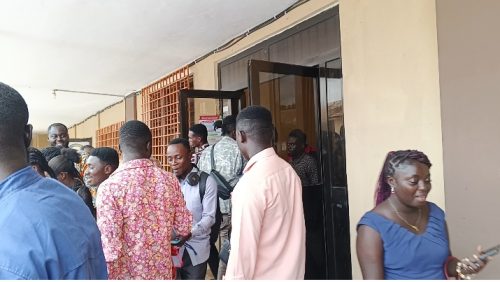
They sacked all the personnels from the auditorium and locked the doors
According to the personnels fearing for their safety of all present, suspended the process indefinitely for the second time in just two months.

Aspirants who had invested heavily in the process—emotionally, financially, and logistically—did not hide their disappointment. Many accused the current executives of deliberately creating conditions for chaos in order to maintain power.
“We are disappointed and angry. Twice we’ve come here, and twice we’ve been disrespected. The leadership has failed the entire region,” another aspirant fumed.
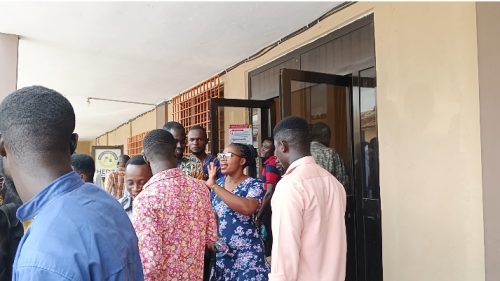
Delegates who had traveled from remote parts of the region, some spending the night in Kumasi in anticipation of a fair election, also expressed outrage.

“This is not just a waste of time and money. It’s a betrayal. The future of NASPA in Ashanti is at stake, and we cannot continue like this,” said a delegate from the Amansie South District.
The absence of elected executives has left the Ashanti Regional NASPA in limbo, with growing concerns over who is legitimately managing the association’s affairs. Service personnel have raised fears that the current state of dysfunction could jeopardize welfare programs, professional development activities, and representation at the national level.
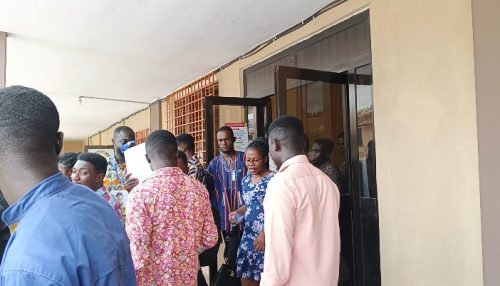
In the aftermath of the debacle, several aspirants and delegates are calling on the Ashanti Regional Police Command and other law enforcement agencies to investigate the involvement of external actors in the electoral process. They are also demanding a full security presence during any future elections to ensure safety and transparency.
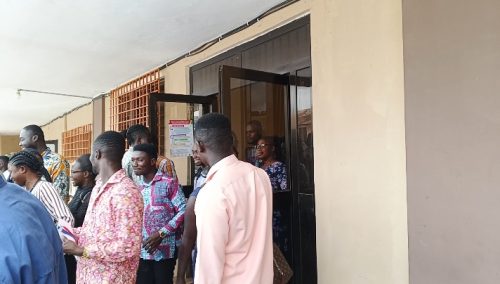
The Ashanti Regional Directorate of the National Service Scheme (NSS), whose officials were present during the failed election, has since appealed for calm and pledged to work with all stakeholders to resolve the impasse.
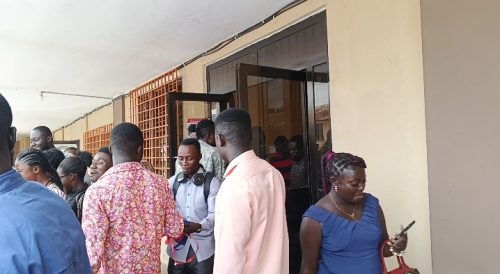
As of now, no new date has been set for another election attempt, and the NASPA Ashanti region remains without elected leadership. The fate of its over 60,000 service personnel hangs in uncertainty as calls for national-level intervention grow louder.






